Ditapis dengan
E-book A Sensory Education
There is also certainly a very specific market, of those who are addressed in the marketing of sensory education tools, with a rather limited inclusivity entailed in many of the workshops, books and programs I found, whether through targeted groups or representation in advertisement. As I delve into throughout the book, sensory education is often seen as an antidote to dig-ital maximalism, wh…
- Edisi
- -
- ISBN/ISSN
- 9781003084341
- Deskripsi Fisik
- 205 hlm
- Judul Seri
- -
- No. Panggil
- 301 HAR a
E-book Eating beside Ourselves : Thresholds of Foods and Bodies
Eating, after all, is not strictly a human activity. Eating beside Ourselvesasks what can be learned by recognizing that what makes food food, in both substance and significance, concerns its relation to a myriad of eaters—not only human eaters but others besides. In turning organic substances into food, acts of eating create webs of relations, interconnected food chains organized by relative…
- Edisi
- -
- ISBN/ISSN
- 9781478024064
- Deskripsi Fisik
- 249 hlm
- Judul Seri
- -
- No. Panggil
- 301 PAX e
E-book The Journey Stories by K. C. Das
thing of a challenge to the elite and orthodox literary culture ofIndia's classical language, Sanskrit. Only the so-called heterodoxreligious groups, the Buddhists and Jains, accepted and encouragedwriting in a vernacular language. Both Buddhists and Jains used earlyvernaculars, called Middle Indie, for religious texts and secular com-positions. …
- Edisi
- -
- ISBN/ISSN
- 9780472902316
- Deskripsi Fisik
- 161 hlm
- Judul Seri
- -
- No. Panggil
- 301 DAS t
E-book Mirrors of Salt : Proceedings of the First International Congress on t…
Configuring an answer starts from the analysis of a few syntheses, representative of the western worldview and genuine cognitive metaphors for the periods in which they were produced. I will trace the paradigms for studying the topic of salt across several stages of human development in order to identify the themes of salt taken into consideration and how they are inter…
- Edisi
- -
- ISBN/ISSN
- 9781784914578
- Deskripsi Fisik
- 477 hlm
- Judul Seri
- -
- No. Panggil
- 301 ALE m
E-book Salt and State : An Annotated Translation of the Songshi Salt Monopoly…
The salt monopoly in premodern China is a near-perfect vehiclefor understanding the Chinese political economy generally. Themonopoly possessed the same type of organization, personnel, methods,and character as any other Chinese bureaucracy of the time, the onlydifference was one of function: it was charged with monitoringproduction, supervisin…
- Edisi
- -
- ISBN/ISSN
- 9780472901456
- Deskripsi Fisik
- 411 hlm
- Judul Seri
- -
- No. Panggil
- 301 LEE s
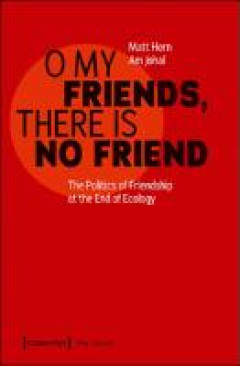
E-Book O My Friends, There is No Friend: The Politics of Friendship at the En…
Can friendship as a political practice offer enough traction to imagine a borderless world? The startling contemporary rise in aggressive ethno-nationalism and end-times ecological crises have the same root: an inability to be together with humans as much as the natural world. Matt Hern and Am Johal suggest that porous renditions of being-together animated by friendship can spark a repoliticiza…
- Edisi
- -
- ISBN/ISSN
- 9783839470268
- Deskripsi Fisik
- 125 halaman
- Judul Seri
- -
- No. Panggil
- 301 HER o
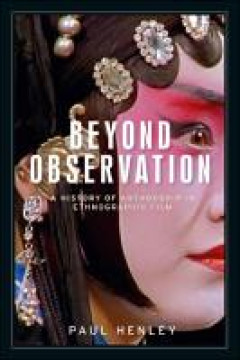
E-Book Beyond Observation: A History of Authorship in Ethnographic Film
This book analyses the authoring of ethnographic films between 1895 and 2015. It is based on the general argument that the ethnographicness of a film should not be gauged according to whether it is about an exotic culture, but rather by the degree to which it conforms to the norms of ethnographic practice more generally. On these grounds, it considers films made in a broad range of styles, on a…
- Edisi
- -
- ISBN/ISSN
- 9781526147295
- Deskripsi Fisik
- 563 halaman
- Judul Seri
- -
- No. Panggil
- 305.8 HEN b
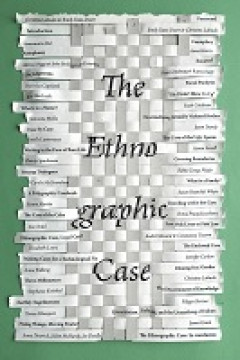
E-Book The Ethnographic Case: Second Edition
The 1st Edition of The Ethnographic Case, published in 2017, was an experiment in post-publication peer review, with the book published online and open to comments from readers. In this new 2nd edition, to be published later this year, the editors and authors have updated the text, both in response to these comments and taking into account changing contexts in the years since the book’s first…
- Edisi
- -
- ISBN/ISSN
- 9781912729340
- Deskripsi Fisik
- 258 halaman
- Judul Seri
- -
- No. Panggil
- 301 YAT t

E-Book Futureproof: Security Aesthetics and the Management of Life
Security is a defining characteristic of our age and the driving force behind the management of collective political, economic, and social life. Directed at safeguarding society against future peril, security is often thought of as the hard infrastructures and invisible technologies assumed to deliver it: walls, turnstiles, CCTV cameras, digital encryption, and the like. The contributors to Fut…
- Edisi
- -
- ISBN/ISSN
- 9781478006909
- Deskripsi Fisik
- 313 halaman
- Judul Seri
- -
- No. Panggil
- 310 GHE f

E-Book The Big Gamble: The Migration of Eritreans to Europe
Why, every year, tens of thousands of people are willing to risk their lives in perilous voyages across Africa and the Mediterranean Sea? Why do they face such an ordeal to reach European countries where their long-term prospects are often dismal? The Big Gamble answers these questions through a multi-sited ethnography with refugees, their families back, smugglers and relatives in the diaspora.…
- Edisi
- -
- ISBN/ISSN
- 9780520298705
- Deskripsi Fisik
- 243 halaman
- Judul Seri
- -
- No. Panggil
- 301 BEL t
E-book Religions around the Arctic : Source Criticism and Comparisons
In recent decades, there has been a certain scepticism about earlier analyses of the indigenous religions of Fennoscandia that compared, for example, Sami and Scandinavian traditions and asked questions almost exclusively about origin. This is now changing and the leading researcher in the new endeavour of com-paring and relating Old Norse and Sami religious tradition…
- Edisi
- -
- ISBN/ISSN
- 9789176351802
- Deskripsi Fisik
- 293 hlm
- Judul Seri
- -
- No. Panggil
- 301 FAN r
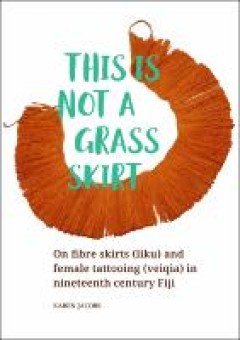
E-Book This Is Not A Grass Skirt: On Fibre Skirts (Liku) and Female Tattooing…
The Pacific ‘grass skirt’ has provoked debates about the demeaning and sexualised depiction of Pacific bodies. While these stereotypical portrayals associated with ‘nakedness’ are challenged in this book, the complex uses and meanings of the garments themselves are examined, including their link to other body adornments and modifications. In nineteenth-century Fiji, beautiful fibre skir…
- Edisi
- -
- ISBN/ISSN
- 9789088908125
- Deskripsi Fisik
- 214 halaman
- Judul Seri
- -
- No. Panggil
- 301 JAC t
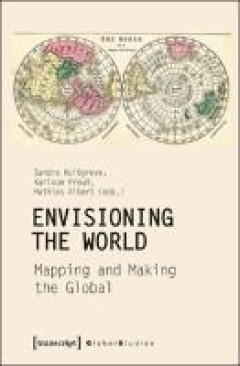
E-Book Envisioning the World: Mapping and Making the Global
The "global" is permanently made and remade by how it is envisioned in political projects, in language, and in literature. Through a range of case studies, this book shows how practices of referring to the world actually constitute the global in its many facets. It aims to provide a sense in readers of how the global is not something »out there«, but that it is embedded in a wide range of the…
- Edisi
- -
- ISBN/ISSN
- 9783839455296
- Deskripsi Fisik
- 264 halaman
- Judul Seri
- -
- No. Panggil
- 301 HOL e
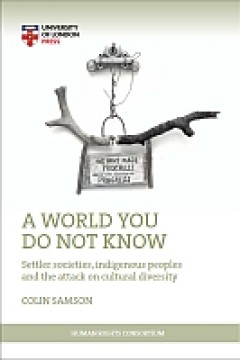
E-Book A World You Do Not Know: Settler Societies, Indigenous Peoples and the…
A World You Do Not Know explores the wilful ignorance demonstrated by North America’s settlers in establishing their societies on lands already occupied by indigenous nations. Using the Innu of Labrador-Quebec as one powerful contemporary example, Colin Samson shows how the processes of displacement and assimilation today resemble those of the 19th century as the state and corporations scramb…
- Edisi
- -
- ISBN/ISSN
- 9781912250394
- Deskripsi Fisik
- 284 halaman
- Judul Seri
- -
- No. Panggil
- 301 SAM a
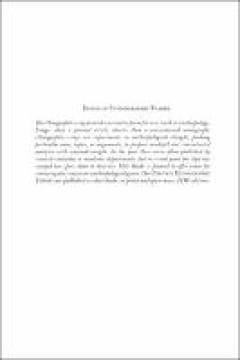
E-Book How Is It Between Us? : Relational Ethics and Care for the World
A new theory of relational ethics that tackles contemporary issues. In How Is It Between Us?, Jarrett Zigon puts anthropology and phenomenological hermeneutics in conversation to develop a new theory of relational ethics. This relational ethics takes place in the between, the interaction not just between people, but all existents. Importantly, this theory is utilized as a framework for consider…
- Edisi
- -
- ISBN/ISSN
- 9781914363054
- Deskripsi Fisik
- 150 halaman
- Judul Seri
- -
- No. Panggil
- 301 ZIG h
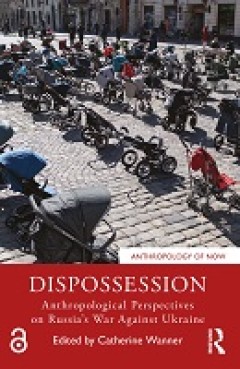
E-Book Dispossession: Anthropological Perspectives on Russia’s War Against …
This volume examines Russia’s war on Ukraine. Scholars who have lived through the Russian invasion or who have conducted ethnographic research in the region for decades provide timely analysis of a war that will leave a lasting mark on the twenty-first century. Using the concept of dispossession, this volume showcases some of the novel ways violence operates in the Russian-Ukrainian war and t…
- Edisi
- -
- ISBN/ISSN
- 9781032466224
- Deskripsi Fisik
- 271 halaman
- Judul Seri
- -
- No. Panggil
- 301 WAN d
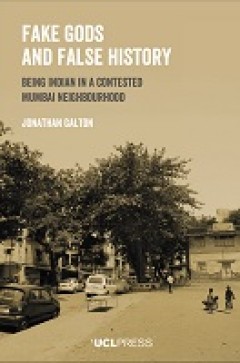
E-Book Fake Gods and False History: Being Indian in a Contested Mumbai Neighb…
n an age where history is a global battleground and fake news proliferates, culture wars are being waged across India over its future – majoritarian or inclusive, neoliberal or socialist, religious or secular? Fake Gods and False History takes us to the BDD Chawls, a central Mumbai neighbourhood of tenement blocks (chawls) on the brink of a controversial redevelopment. Throughout the book, …
- Edisi
- -
- ISBN/ISSN
- 9781800085800
- Deskripsi Fisik
- 237 halaman
- Judul Seri
- -
- No. Panggil
- 305.8 GAL f

E-Book How Water Makes Us Human
This book is about how water becomes people – or, put another way, how people and water flow together and shape each other. While the focus of the book is on the relationships held between water and people, it also has a broader message about human relationships with the environment generally – a message that illustrates not only that people are existentially entangled with the material wor…
- Edisi
- -
- ISBN/ISSN
- 9781786834119
- Deskripsi Fisik
- 192 halaman
- Judul Seri
- -
- No. Panggil
- 301
E-book Exhibiting Creative Geographies : Bringing Research Findings to Life
This book makes a case for art as geography. In doing so, it situates itself at a certain juncture—the translation of geographical knowledge through art. This juncture is blurry, because in the making of art to trans-late knowledge, new knowledge is created. For this very reason, this book won’t perpetuate a false distinction between knowledge creation and kn…
- Edisi
- -
- ISBN/ISSN
- 9789811967528
- Deskripsi Fisik
- 116 hlm
- Judul Seri
- -
- No. Panggil
- 301 BOY e
E-book Cultural Heritage Preservation : The Past, the Present and the Future
Heritage comes in many shapes—in tangible forms such as sites, buildings, landscapes, or as intangibles, like memories, emotions, values and customs—as does the use of heritage, ranging from the purpose of building nations to marketing places. Heritage usually represents a phenomenon within a traditional historical discourse but have lately, more and more, come to take in peripheral appeara…
- Edisi
- -
- ISBN/ISSN
- 9789187045950
- Deskripsi Fisik
- 158 hlm
- Judul Seri
- -
- No. Panggil
- 301 NIL c
E-book The World as Abyss : The Caribbean and Critical Thought in the Anthrop…
In 1939 Martinican writer Aimé Césaire first published his book length poem variously translated as Notebook of a Return to My Native Land, Return to My Native Land, or Journal of a Homecom-ing, in which this epigraph appears. As the colonial powers were taking the world into an era of mass destruction, Césaire drew upon a Caribbean imaginary to counterpose to th…
- Edisi
- -
- ISBN/ISSN
- 9781915445315
- Deskripsi Fisik
- 123 hlm
- Judul Seri
- -
- No. Panggil
- 301 PUG t
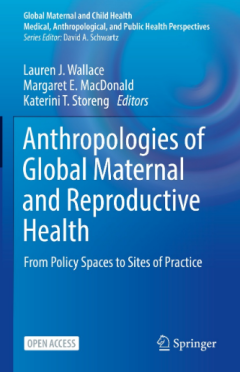
E-book Anthropologies of Global Maternal and Reproductive Health: From Policy…
This open access edited book brings together new research on the mechanisms by which maternal and reproductive health policies are formed and implemented in diverse locales around the world, from global policy spaces to sites of practice. The authors – both internationally respected anthropologists and new voices – demonstrate the value of ethnography and the utility of reproduction as a le…
- Edisi
- -
- ISBN/ISSN
- 9783030845148
- Deskripsi Fisik
- 225 hlm
- Judul Seri
- -
- No. Panggil
- 362.1 WAL a
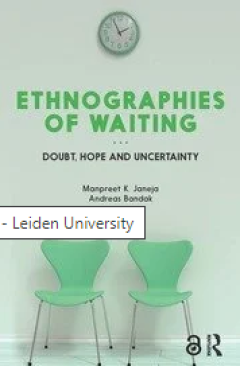
E-book Ethnographies of Waiting : Doubt, Hope and Uncertainty
- Edisi
- -
- ISBN/ISSN
- 9781000183764
- Deskripsi Fisik
- 212 hlm
- Judul Seri
- -
- No. Panggil
- 305.8 JAN e
- Edisi
- -
- ISBN/ISSN
- 9781000183764
- Deskripsi Fisik
- 212 hlm
- Judul Seri
- -
- No. Panggil
- 305.8 JAN e
E-book Culture Management : Strategy and marketing aspects
Any business entity which wishes to maintain and strengthen its position in the market must adapt to changing market conditions and the requirements and needs of its customers. This applies to all sectors of the economy, including business entities in the cultural sector, such as cultural institutions. For over twenty years, we have been able to observe dynamic develop…
- Edisi
- -
- ISBN/ISSN
- 9783832543785
- Deskripsi Fisik
- 196 hlm
- Judul Seri
- -
- No. Panggil
- 301 WRO c
E-book Hyposubjects : On Becoming Human
Stuff is happening. The book Hyperobjects is now in a way irrele-vant—everyone knows, everyone intuitively feels (which is much more important) what a hyperobject is. Coronavirus is everywhere. You can’t see it. It operates on all kinds of different scales—terrify-ing interpersonally or if you’re being forced back to work or school; weirdly amazing…
- Edisi
- -
- ISBN/ISSN
- 9781785420979
- Deskripsi Fisik
- 96 hlm
- Judul Seri
- -
- No. Panggil
- 300.1 MOR h
E-book Forensis : The Architecture of Public Truth
Considering the wide range of projects, scales, issues, and epistemic frames that the project ended up traversing, it is important to mention that Forensic Architecture had a modest start: it was inspired by the unassuming work of building surveyors—the careful and systemic analysis of the structural and infrastructural conditions of a building.17 Building surveyors understand a crucial thing…
- Edisi
- -
- ISBN/ISSN
- 9783956790119
- Deskripsi Fisik
- 390 hlm
- Judul Seri
- -
- No. Panggil
- 599.9 COL f
 Karya Umum
Karya Umum  Filsafat
Filsafat  Agama
Agama  Ilmu-ilmu Sosial
Ilmu-ilmu Sosial  Bahasa
Bahasa  Ilmu-ilmu Murni
Ilmu-ilmu Murni  Ilmu-ilmu Terapan
Ilmu-ilmu Terapan  Kesenian, Hiburan, dan Olahraga
Kesenian, Hiburan, dan Olahraga  Kesusastraan
Kesusastraan  Geografi dan Sejarah
Geografi dan Sejarah